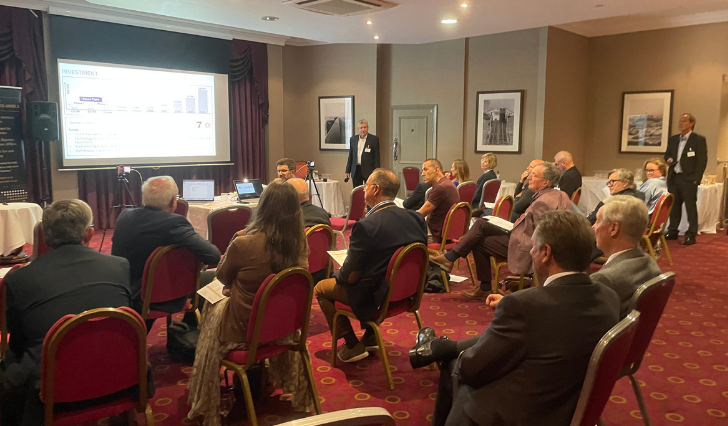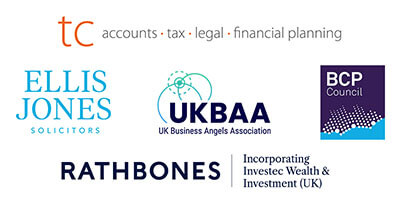When evaluating potential investments, angel investors often focus heavily on business models, market size and financial projections. However, experienced investors know that the founding team—particularly the leader—can make or break an investment.
Numerous early-stage businesses pivot from their original idea. What determines whether a company thrives or fails during these critical moments isn’t the elegance of the business plan, but the quality of the team steering the ship.
Why the human element matters most
Experienced angel investors have come to recognise that a brilliant business concept executed by a mediocre team rarely succeeds. Conversely, an exceptional team can turn even an ordinary idea into something remarkable.
The evidence supports this approach. Most startups fail not because the product was flawed but because of team issues—poor leadership, communication breakdowns, or inability to adapt. When challenges arise (and they always do), team dynamics become the critical factor in survival.
This is why conducting thorough due diligence on the founding team is just as crucial as reviewing the financial projections. A founder with the right qualities can pivot successfully when initial models prove unsuccessful, raising the odds of the investment paying off.
Looking beyond professional credentials
A founder’s CV might showcase impressive educational credentials or prior startup experience, but these factors alone don’t predict success. Savvy angel investors dig deeper, looking for:
- Resilience and adaptability: How do the founders respond to setbacks? Have they demonstrated persistence through challenges? Business plans rarely survive first contact with reality—it’s the founder’s ability to adapt that determines what happens next.
- Intellectual honesty: Can they admit what they don’t know? Do they acknowledge mistakes and learn from them? Founders who believe they have all the answers might present additional risk to investments.
- Complementary skillsets: Does the team have a balanced mix of technical, operational and commercial expertise? Or are there critical gaps that might hamper execution?
- Shared vision but diverse perspectives: Is there alignment on the company’s mission while maintaining healthy diversity of thought? Echo chambers rarely produce innovative solutions.
- Communication skills: How effectively do they explain complex ideas? Can they inspire others with their vision? A founder who can’t clearly articulate their vision might struggle to attract talent, customers and future investment.
Red flags for angel investors
Just as important as spotting positive qualities is recognising warning signs. These red flags can often indicate potential issues:
🚩 Founders who cannot articulate what they don’t know or where they need help. Self-awareness is crucial for leadership growth.
🚩 Teams with identical backgrounds and perspectives. This lack of diversity often leads to blind spots in strategy and execution.
🚩 Evidence of ego-driven decisions rather than business-driven ones. The market doesn’t care about the founder’s ego.
🚩 Inability to accept feedback or criticism constructively. Growth requires being open to alternative viewpoints.
🚩 Excessive focus on titles, equity splits or status issues early on. This suggests priorities that could affect execution.
The coachability factor
Perhaps one of the most valuable traits in founders is coachability—their willingness to learn, adapt and grow with guidance. This quality is particularly important for angel investors who bring not just capital but expertise and connections.
Coachability can be assessed by:
- Observing how founders respond to suggestions during initial meetings. Do they become defensive or genuinely consider different perspectives?
- Their receptiveness to introductions to potential customers or partners. Do they follow through on opportunities presented?
- Whether they’ve sought mentorship in the past and applied what they’ve learned. Past behaviour tends to predict future actions.
- How they describe previous failures and what they took from those experiences. The best founders own their mistakes and extract valuable lessons.
Evaluating team dynamics in practice
When meeting founding teams, experienced investors pay attention to these revealing signs:
- How founders interact with each other: Do they demonstrate mutual respect? Who speaks and who listens? Does one person dominate?
- Decision-making processes: How do they reach consensus? Is there a clear structure for making difficult choices?
- Responses to challenging questions: Do they become defensive or welcome the opportunity to explore different perspectives?
- Prior working relationships: Have they successfully collaborated before? How have they handled conflicts?
Questions that reveal character
Many successful investors develop a repertoire of questions designed to reveal the human factors that matter:
“Tell me about a time when you had to completely change direction.” This reveals adaptability and decision-making under pressure.
“What’s the biggest professional mistake you’ve made, and what did you learn?” Their answer shows self-awareness and a growth mindset.
“How do you resolve disagreements within the team?” This illuminates communication style and conflict resolution.
“What keeps you awake at night about the business?” Their answer reveals priorities and blind spots.
“What skills or expertise are you currently missing in your team?” This shows self-awareness and planning capability.
Building a relationship before investing
The best due diligence on founding teams happens over time, not in a single meeting. Investors might consider:
- Following founders on social media to observe their thought leadership and communication style.
- Arranging multiple meetings in different settings to see how they operate across contexts.
- Speaking with team members beyond just the founders to assess culture and alignment.
- Offering specific help with a challenge, to see how they respond to support.
- Introducing them to others in their network and gathering feedback about the interaction.
The value of character
Companies often talk about their unique value proposition, but the founder’s character is equally important. Some of the most successful companies are led by founders with distinctive qualities—introverts in extrovert roles, leaders with unconventional backgrounds, or thinkers who approach problems differently.
What often matters isn’t conformity to a standard template of leadership, but authentic qualities that enable effective execution: intellectual honesty, resilience, adaptability and passion for solving the problem they’ve identified.
Final thoughts
When evaluating potential investments, it’s worth remembering that impressive market analyses and financial projections can be created with the right tools. But the intangible human factors—resilience, adaptability, integrity and collaborative intelligence—are what truly determine whether a founding team can execute on their vision and deliver returns.
Many successful angel investors develop an instinct for evaluating these human elements. They understand that while a good idea might attract initial interest, it’s the founding team that will ultimately determine whether that investment flourishes or fails.
A poor leader in a great business may diminish shareholder value. A great leader in an average one could create significant extra value. When investment decisions consider character and capability alongside projections and presentations, portfolios—and returns—may benefit accordingly.




